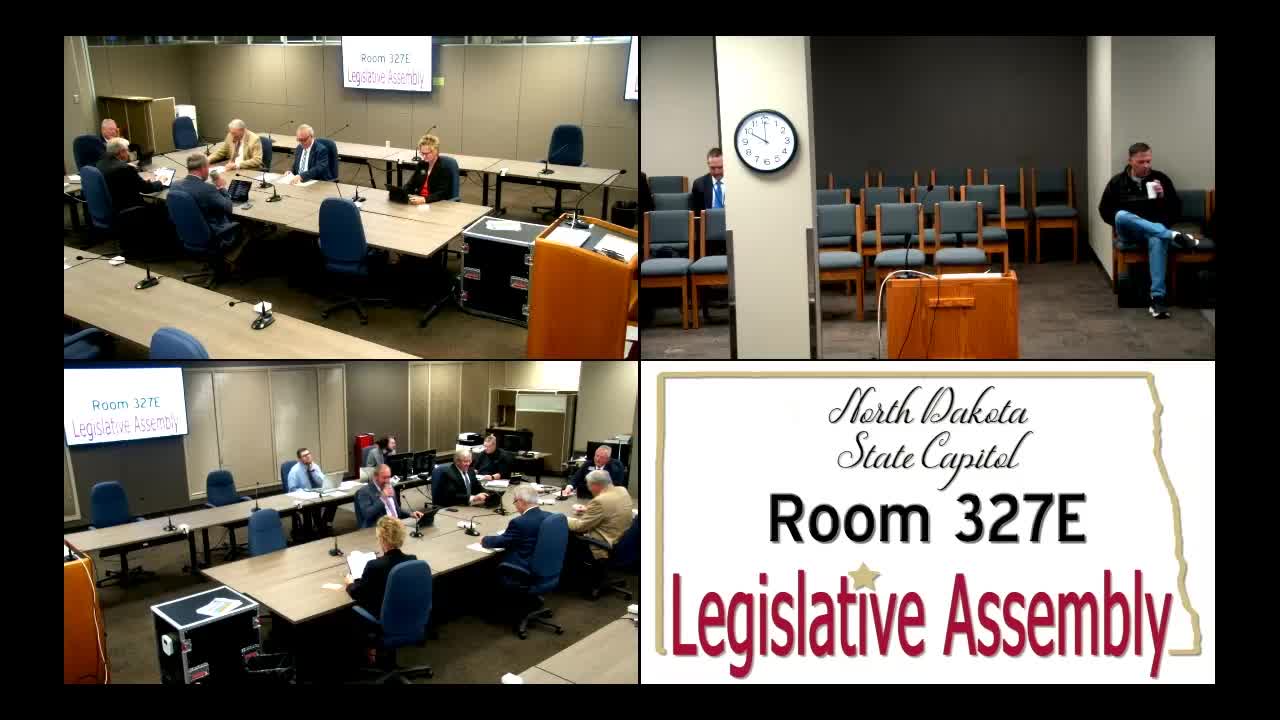Conference committee hears coal industry plea to extend conversion-tax relief for aging plants
Get AI-powered insights, summaries, and transcripts
Subscribe
Summary
A House–Senate conference committee met to discuss House Bill 12 79 and heard industry testimony seeking an extension of a state coal conversion-tax holiday, citing jobs, local tax revenue and market pressure from wind production tax credits and federal regulations.
The conference committee on House Bill 12 79 met to hear coal-industry testimony and discuss whether to extend a state conversion-tax holiday aimed at helping lignite-fired power plants remain economically viable.
Representative Porter, a member of the House conference contingent, opened the substantive discussion by stressing the meeting’s “whole picture” view of state energy policy and saying, “I am all inclusive in my supportive energy. I am all inclusive in my supportive energy.” Porter and other House members sought relief that would give coal plants additional near-term revenue as they compete with wind and face federal regulatory pressure.
Jonathan, speaking on behalf of the Lignite Energy Council, told the committee the industry supports an extension because plants face market displacement when wind supplies low‑cost electricity and because of federal regulatory uncertainty. Jonathan said the industry’s plants support about 12,000 jobs, produce about $5.5 billion in annual economic impact and generate roughly $100 million a year in state and local taxes. He said the current conversion-tax relief amounts to about $20 million a year statewide — roughly $4 million per plant — and that extending that relief would give operators “some breathing room” while they pursue carbon-capture projects and legal challenges to EPA rules.
Jonathan summarized other pressures facing coal: the federal production tax credit for wind, which he said was increased under the Inflation Reduction Act to $27 per megawatt-hour; multiple EPA regulatory actions he described as a ‘‘regulatory threat’’ including a greenhouse‑gas rule; and litigation in federal courts seeking stays of those regulations. He said carbon-capture retrofits at major plants could cost ‘‘about $2,000,000,000 apiece’’ and would be pursued in part to produce CO2 for enhanced oil recovery, estimating the state’s facilities could produce about 30 million tons per year of industrial CO2 if those projects proceed.
Senators on the panel pressed for context. Senator Weber asked Jonathan to put the $20 million figure in perspective against total company revenues; Jonathan said he did not have consolidated revenue figures in the room but that much of the plants’ financials are public through cooperative reports and offered to bring utility CEOs to a future meeting. Senator Beckettall urged the committee to remain focused on the coal issue rather than broad energy policy debates; Senator Beccadolf and others said they were willing to listen to additional testimony but noted they had already received industry briefs and emails.
Representative Porter asked the committee to allow ‘‘upper level coal folks’’ — identified later as cooperative and plant CEOs — to address the six conference members in person. The committee agreed to attempt to arrange that testimony for the next meeting; Jonathan said he would work to bring major member CEOs and other industry representatives to the Monday meeting.
No formal motions or votes were taken during the half‑hour hearing. The committee concluded its allotted time and adjourned with a direction to arrange additional testimony from cooperative CEOs and other industry witnesses.
The discussion covered technical and financial details raised by industry witnesses and committee members but did not produce a formal committee decision or amendment to House Bill 12 79 during the session.
